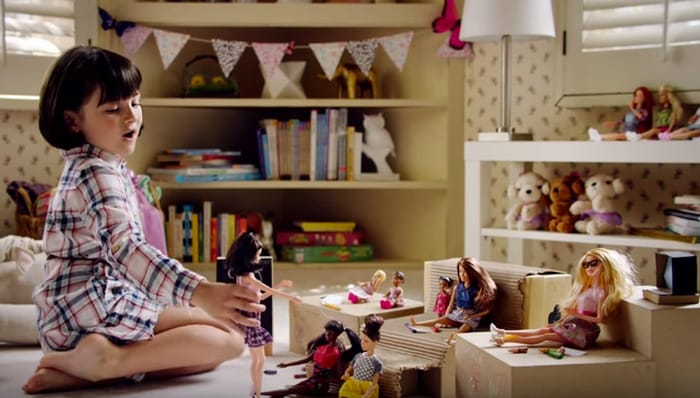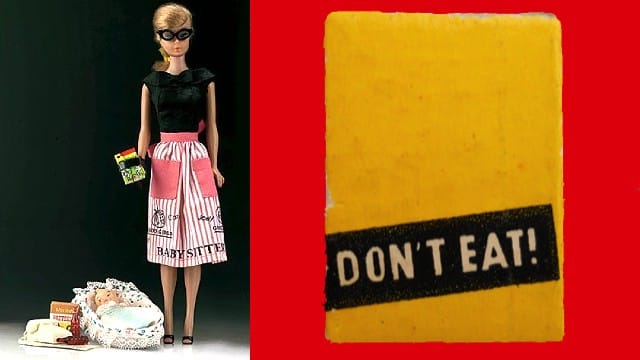Mattel revamps its Barbie marketing strategy to empower girls through play

Whether rebelling or doting, every girl grew up with her own affecting and polarizing relationship to Barbie (or dolls like her). Like most kids, the relationship developed between a young girl and her toy proxy can come to define her early social interactions, imagination, and personality. In a weird way, a girl’s relationship to her Barbie can almost surpass the intimacy of her relationships with her own family members in certain regards. Because Barbie is there for the moments when she discovers the world all on her own: exploring life without the approval of her parents or guardians hanging over her head.
hat sacred experience between a child and her toy
Unfortunately, for many decades that sacred experience between a child and her toy has been mediated through the likes of Barbie. And while Mattel isn’t an inherently evil company, its products haven’t always been made while keeping the best interest of young girls in mind. In the past, Mattel has released such gems as Barbie Babysitter in 1959, who came complete with a book that taught Babysitter Barbie “HOW TO LOSE WEIGHT” (spoiler alert: you just “DON’T EAT.”) More recently, a book called Barbie: I Can Be A Computer Engineer found the icon saying such things as: “I’m only creating the design ideas. I’ll need Steven’s and Brian’s help to turn it into a real game.”

Yet while marketing the product in a way that appeals to strict beauty standards and conventional gender roles has worked for decades in the past, Mattel is now finding itself in more and more trouble. Barbie sales have been declining every year since 2011, with a whopping 14% drop in 2014 alone according to Catch News.
In an attempt to target a new generation that’s asking tough questions about representation, Mattel is now turning towards a more empowering advertising message. Following the release of a racially diverse line of dolls known as Barbie Fashionistas, this week Mattel also released a new advertisement campaign with the tagline that says girls “can do anything.”
“This generation of moms has been bombarded with images with Barbie, but don’t know why Barbie was created in the first place,” Matt Miller, executive creative director at BBDO, explained to Ad Age about the tagline. “We had this creative a-ha moment when we found a quote by Ruth Handler, Barbie’s creator, saying that she created Barbie to show girls that they had choices.”
In the commercial, various young girls can be seen playing at different types of leadership roles, from professor to a soccer coach. “What happens when girls are free to imagine they can be anything?” the commercial asks, demonstrating the important and constructive role playing can have in a child’s development. Each imaginary situation smacks of that unique brand of play logic, where kids mash-up situations they’ve seen happen in real life seamlessly with their fantastical explanations. Suffice to say: each girl kills it at her respect profession.
Mattel is not only saying that girls matter, but also that play matters
The commercial brings back some of the sanctity to the relationship between a young girl and her doll. Because when a girl plays with dolls—acting out scenarios that fall somewhere between pretend and real world understanding—she is laying herself bare, revealing her limited yet telling views of this strange world she lives in. As videogames like Nina Freeman’s How do you Do It have previously explored, dolls help girls discover themselves outside the boundaries of social acceptability. All sorts of desires and dreams can emerge, be them aspirational or fantastical.
More than just empowering young girls, though, the commercial tells of the importance of uninhibited play for all children. By demonstrating just how powerful a simple role-playing game can be, Mattel is not only saying that girls matter, but also that play matters, and that it really matters in our fight to help girls everywhere understand that they matter.



